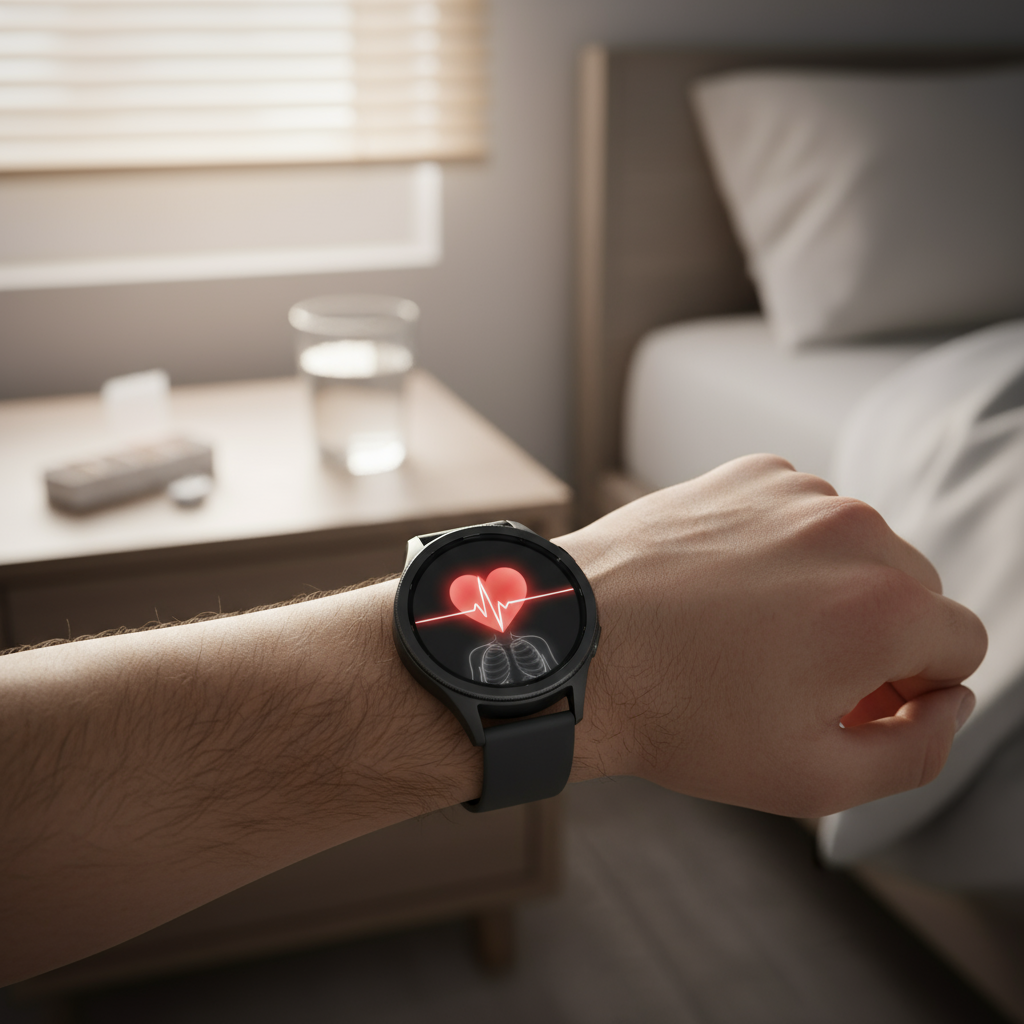Your Galaxy Watch Might Soon Be Your Heart’s Silent Guardian Against Heart Failure

Imagine a tiny, stylish device on your wrist, tirelessly monitoring your health, not just tracking your steps or sleep, but actively looking for silent, insidious threats. For years, smartwatches have promised a future of proactive health monitoring, and while they’ve delivered in many ways, the next frontier is an exciting and potentially life-saving one. Just as Apple made waves with its hypertension alerts, Samsung is now stepping up to tackle an even more serious cardiovascular concern: heart failure. This isn’t just about counting beats; it’s about understanding the subtle physiological shifts that could indicate a looming health crisis, providing early warnings that could truly make a difference.
The Silent Threat: Why Early Detection of Heart Failure Matters

Heart failure is a chronic, progressive condition where the heart muscle is unable to pump enough blood to meet the body’s needs. It’s often misunderstood, with many people believing it means the heart has stopped working entirely. In reality, it’s a weakening and stiffening of the heart, leading to symptoms like shortness of breath, fatigue, and swelling, which can gradually worsen over time. The statistics are sobering: according to the CDC, about 6.2 million adults in the United States have heart failure, and it contributes to 1 in 8 deaths.
The insidious nature of heart failure lies in its often subtle and escalating symptoms. Many individuals might dismiss early signs as simply “getting older” or being out of shape, delaying a crucial diagnosis. This delay can have significant consequences, as early intervention and management are critical for improving quality of life and prognosis. The sooner heart failure is detected, the sooner a tailored treatment plan can be put in place, potentially slowing its progression and mitigating its impact. This is precisely where the power of continuous, passive monitoring offered by smartwatches like the Samsung Galaxy Watch comes into play.
How Smartwatches Can Unmask Hidden Heart Risks
So, how exactly can a smartwatch detect something as complex as heart failure? The answer lies in the sophisticated sensors and algorithms being developed. While the specifics of Samsung’s approach are likely under wraps, we can infer some potential avenues based on existing smartwatch capabilities and ongoing medical research.
One key area is the analysis of changes in heart rate variability (HRV). HRV measures the variation in time between heartbeats. A consistent low HRV can sometimes be an indicator of underlying health issues, including cardiac strain. Similarly, deviations in resting heart rate over time could provide valuable clues. Furthermore, the ability to measure blood oxygen levels (SpO2) and even track changes in skin temperature could contribute to a more holistic picture of cardiovascular health. Advanced sensors might also be looking at subtle changes in blood pressure trends, even if a direct, cuff-accurate reading isn’t always available on the device itself.
Beyond these physiological metrics, smartwatches are increasingly incorporating features that can analyze subtle changes in sleep patterns and activity levels. For someone developing heart failure, there might be a gradual decrease in their usual activity, an increase in disturbed sleep due to breathing difficulties, or even slight changes in body weight due to fluid retention. By combining these disparate data points, a powerful AI-driven algorithm can begin to identify patterns that deviate from a user’s baseline, flagging potential warning signs long before they become acutely noticeable.
The Promise and the Practicalities: What This Means for Users and Healthcare
The introduction of heart failure detection capabilities in Samsung Galaxy Watches holds immense promise for both individual users and the broader healthcare system. For individuals, it offers a proactive layer of personal health monitoring, potentially empowering them to seek medical attention at an earlier, more treatable stage. Imagine receiving a discreet notification on your watch, prompting you to consult your doctor about certain physiological changes. This could be a game-changer for those who might otherwise delay seeking help.
However, it’s crucial to approach this with a clear understanding of practicalities and limitations. Smartwatches are not diagnostic tools; they are screening and monitoring devices. The data they collect should always be interpreted by a healthcare professional. A “warning sign” from your watch should prompt a conversation with your doctor, not self-diagnosis or panic. The technology will need to be incredibly accurate to minimize false positives, which could lead to unnecessary anxiety and strain on the healthcare system. Conversely, false negatives could provide a false sense of security.
Samsung, like Apple, will need to navigate rigorous regulatory approvals from bodies like the FDA to ensure the safety and efficacy of these features. This process is often lengthy and demanding, reflecting the seriousness of providing health-related insights. Collaboration with medical professionals and extensive clinical trials will be paramount to building trust and ensuring the real-world utility of these advanced health features. The success of this endeavor hinges not just on technological prowess, but also on responsible implementation and clear communication with users.
A Healthier Future, One Wrist at a Time
The impending arrival of heart failure detection on Samsung Galaxy Watches marks another significant leap forward in the evolution of wearable technology’s role in healthcare. It moves beyond mere fitness tracking and into the realm of truly proactive, potentially life-saving health monitoring. While challenges remain in terms of accuracy, regulation, and integration with existing healthcare systems, the vision is clear: to empower individuals with personalized health insights that can lead to earlier diagnoses and better outcomes.
As our smartwatches become ever more sophisticated, they are transforming from glorified step counters into silent, intelligent guardians of our well-being. The ability to detect conditions like heart failure not only highlights the incredible potential of these devices but also underscores our collective movement towards a future where preventative care is seamlessly woven into the fabric of our daily lives. So, the next time you glance at your Galaxy Watch, remember that soon, it might not just be telling you the time; it might be offering you the gift of more time.

